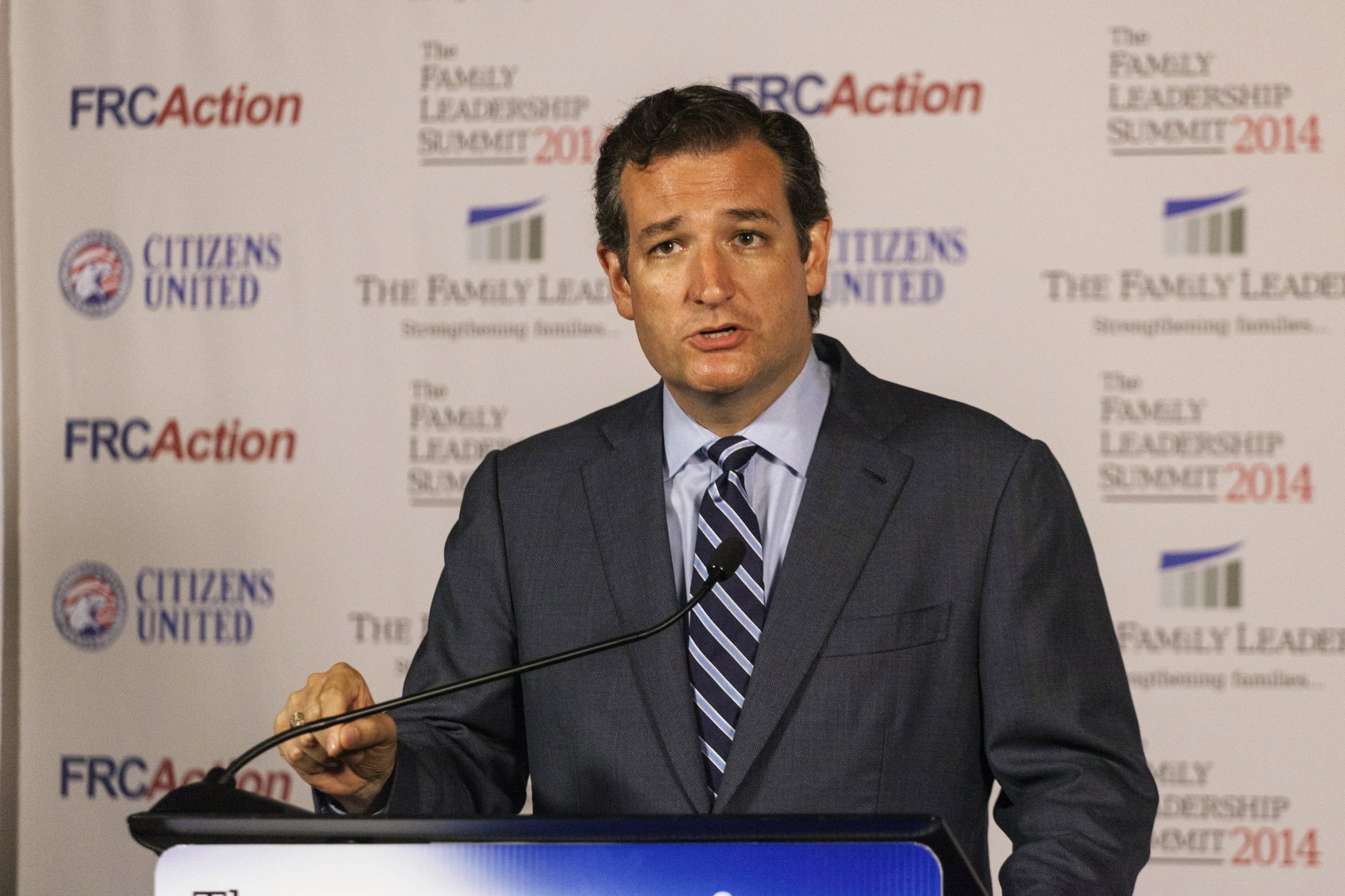
Federal law bars billionaire Robert Mercer from giving as much as $6,000 to Ted Cruz's presidential campaign. Thirty-nine years ago, in Buckley v. Valeo, the Supreme Court upheld limits on contributions to candidates.
But federal law did not block Mercer from giving $11 million to a super PAC whose mission is to urge voters to support Cruz. A federal statute formerly limited contributions to super PACs to $5,000, but in 2010 a federal court held this statute unconstitutional.
A super PAC is a political action committee that does not make contributions to candidates but instead places its own "independent" ads supporting candidates and disparaging their opponents. These groups have been called "the attack dogs and provocateurs of modern politics."
The candidates they support need not take responsibility for what they say, and the groups usually disappear once an election is over. The attack ads they produce contribute to the nation's cynicism about politics, a cynicism that runs especially deep among young people.
Limits on contributions to candidates no longer restrict what people can give to electoral efforts; they simply channel funds to less responsible and more destructive speakers.
No sane legislator would vote in favor of our regime of campaign financing, and no legislator ever has. The United States has this topsy-turvy regime because the federal courts have held that the First Amendment requires it.
Yet the thought that the Constitution requires it looks loopy too. According to the courts, Congress can prohibit a $6,000 contribution to an official campaign because this contribution is corrupting or creates the appearance of corruption. But Congress cannot prohibit an $11 million contribution to a super PAC because this contribution does not give rise to corruption or the appearance of corruption.
It wasn't the Citizens United decision that created this strange state of affairs. That case did not concern contributions at all. As the Supreme Court emphasized, Citizens United concerned "independent expenditures."
Back in Buckley in 1976, the Supreme Court sharply distinguished between contributions and expenditures. In the years since Buckley, the Court has consistently struck down expenditure limits while upholding most contribution limits. The Citizens United opinion reiterated, "Contribution limits, unlike limits on independent expenditures, have been an accepted means of preventing quid pro quo corruption."
But two months after Citizens United, in a case called SpeechNow, an appellate court in the District of Columbia held all federal limits on contributions to super PACs unconstitutional. The Supreme Court had said that independent expenditures don't corrupt, and the D.C. court reasoned that, if a group's expenditures don't corrupt, the contributions that make these expenditures possible can't corrupt either.
The sentence of the Citizens United opinion on which the D.C. court relied was what lawyers call dictum—a nonbinding aside. Much of the Supreme Court's opinion suggests that this statement should not be taken literally. Moreover, the D.C. court did not explain how super PAC contributions could be distinguished from the campaign contributions whose limitation Buckley had upheld.
Despite the many flaws of the D.C. Circuit decision, the Obama Justice Department failed to seek Supreme Court review. Attorney General Eric Holder explained in a letter to Senator Harry Reid: "The court of appeals decision will affect only a small subset of federally regulated contributions."
The Justice Department must now realize how badly it blew it. Almost half the funds spent during the current presidential race have come from just 158 families contributing a minimum of $250,000. The "small subset of federally regulated contributions" has become the monster that devoured election law.
Citizens United might have set the stage, but SpeechNow and the Obama Justice Department's failure to appeal it bear greater responsibility than the Supreme Court for unleashing super PACs.
If an appropriate case were to come before the Court and if even one member of the five-justice Citizens United majority were to conclude that SpeechNow went too far, the super PAC takeover of our democracy could be ended. The Justice Department should support efforts to secure a definitive Supreme Court ruling.
Albert W. Alschuler is the Julius Kreeger professor emeritus at the University of Chicago Law School. Laurence H. Tribe is the Carl M. Loeb University professor and professor of Constitutional Law at Harvard University.
Uncommon Knowledge
Newsweek is committed to challenging conventional wisdom and finding connections in the search for common ground.
Newsweek is committed to challenging conventional wisdom and finding connections in the search for common ground.
About the writer
To read how Newsweek uses AI as a newsroom tool, Click here.








